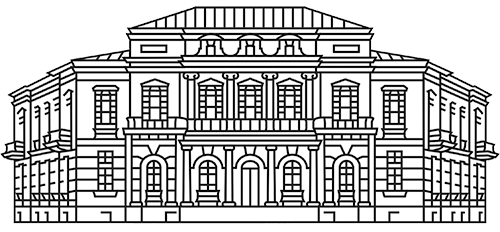Lietuvos mokslų akademijos Vrublevskių biblioteka: tęstinis mokslo darbų leidinys
2021, t. 10, p. 13–45
ISSN 1648-9772
doi: 10.54506/LMAVB.2021.10.3
SIGITAS NARBUTAS
Jonas Karolis – Dievo Lietuvai duotas taleris
Anotacija
Studijoje aptariamas Jono Karolio Chodkevičiaus vaizdavimas Lietuvos neolotyniškoje poezijoje. Vienalaikių kūrinių turinį sudaro svarbiausi Chodkevičiaus biografijos faktai, jo bei jo šeimos narių pagerbimas ir jo fundacijos. Juose apdainuojami ne visi, o tik svarbiausi įvykiai bei nuopelnai. Visi šie neolotyniškosios poezijos kūriniai yra proginiai. Pagal įvykio turinį juos galima apžvelgti teminėmis grupėmis, atskirai aptariant herojinę, laidotuvių, sveikinimų (gimus bei pradėjus eiti pareigas) ir dėkojimo už suteiktis poeziją. Studija skiriama Chodkevičiaus gimimo 450-osioms ir mirties 400-osioms metinėms paminėti.
Esminiai žodžiai: Jonas Karolis Chodkevičius; Karolis IX Vaza; Livonijos karas (1600–1611); Salaspilio (Kirchholmo) mūšis; Chotyno mūšis (1621); neolotyniškoji poezija; senoji Lietuvos literatūra.
Jan Karol, ever great, a godsend to the state
Summary
The study aims to discuss the portrayal of Jan Karol Chodkiewicz in the neo-Latin poetry of Lithuania. Works contemporary to Chodkiewicz present the main facts of his biography, sing accolades to him and his family, and tell of his foundations. These poems concern not all his deeds or events of his life, but only the most important ones. All these examples of neo-Latin poetry are commemorative. They are grouped thematically by type of occasion, separately discussing heroic and funerary poems, as well as poems of congratulations (on birth or new office) and of gratitude for patronage. The heroic poetry section discusses Victoria by Basilius Plinius (most probably, 1605; Victory), Carolomachia (1606) by Laurentius Boierus, and two poems by Philipp Middendoff (Mittendorff): Illust[rissi]mo et mag[nifi]co Heroi ac d[omi]no d[omi]no Carolo Chodkiewicz comiti in Sklow et Bichow de Mysza … de Parnavae obsidione soluta Dunamundaque recepta hostibus caesis et profligatis Riga gratulatur (1611; Riga is grateful to the most illustriuous and magnificent hero, the Count of Shklov, Bykhov and Mysha, Karol Chodkiewicz, for breaking the siege of Pärnu, recovering Daugavgrīva, slaying and scattering the foe) and Ill[ustrissi]mo et mag[nifi]co Heroi ac domino dn. Iohanni Carolo Chodkievvicz comiti in Schlow et Bichow de Missa … Livonia reditum foelicem gratulatur (1619; Livonia congratulates the most illustriuous and magnificent hero, the Count of Shklov, Bykhov and Mysha, Karol Chodkiewicz, on his felicitous return). The funerary poetry section presents two books: Schema parentalium summae spei adolescenti, illustrissimo domino d. Hieronymo Chrysostomo Chotkiewicz (1614; Image of the memories of the most illustrious Lord Hieronim Chryzostom Chodkiewicz who had inspired the highest hope) published on behalf of the students of Vilnius Academy; and Laurus immortalitatis ad illustrissimi d. d. Ioannis Caroli Chodkiewicz … cenotaphium positum ab illustrissimo d. d. Ioanne Stanislao Sapieha … in ecclesia Nesvisien[si] Societatis Iesu (1621; The laurel of immortality placed by the most illustrious Lord Jan Stanislaw Sahieha at the cenotaph of the most illustrious Lord Jan Karol Chodkiewicz in the Nesvizh Church of the Society of Jesus) published by Rafal Skorulski together with other students of the Nesvizh Jesuit Academy. The section devoted to congratulatory poetry examines four books: Fausta gratulatio in exoptatissima Hieronymi Chodkiewicz natalitia, filii illustris ac magnifici domini, d. Ioannis Caroli Chodkiewicz (1598; Felicitous congratulations on the most yearned-for birth of Hieronim Chodkiewicz, son of the illustrious and magnificent Lord Jan Karol Chodkiewicz) and Illustri ac magnifico domino d. Ioannis Carolo Chodkiewicz … faeliciter auspicanti generalem capitaneatum Samogitiae etc. etc. poema gratulatorium (1599; Congratulatory poem for the illustrious and magnificent Lord Jan Karol Chodkiewicz … on his beginning the Eldership of Samogitia etc. etc. under felicitous auspices), both by Albert Skorawiec, as well as Ποιημάτιον honorarium, novo palatino Viln. illustrissimo domino Ioanni Carolo Chodkiewicz (1617; A poem in honour of a new Vilnius Palatine, the most illustrious Lord Jan Karol Chodkiewicz) by Jan Horski and Septem Chodkiewicii heroes exercitus Lithuani ac duces ill. Christophorum Chodkiewicz palatinum Vilnensem etc. Vilnam ingredientem gratulatione excipientes (1642; Seven Chodkiewicz heroes, commanders
of the Lithuanian Army, congratulate the Vilnius Palatine etc., Krzysztof Chodkiewicz, on his entering Vilnius) by Peter Casimir Lacki. The section devoted to gratitude for patronage overviews two poetry books: Maciej Kazimierz Sarbiewski’s Obsequium gratitudinis illustrissimo d. Ioanni Carolo Chodkiewicz … ab Apolline Crosensi persolutum (1619; Obsequious gratitude to the most illustrious Lord Jan Karol Chodkiewicz … offered by the Apollo of Kražiai) and Sacra lithothesis in prima templi Magnae Virgini Matri dedicati erectione a patribus Collegii Crosensis Societatis Iesu, liberalitate illustrissimi domini d. Ioannis Caroli Chodkiewicz … fundati auspicato celebrata ab eiusdem Collegii Chodkieviciani studiosa iuventute descripta (1621; The consecration of the cornerstone laid for the erection of a church dedicated to the Great Virgin Mother and funded by the generosity of the most illustrious Lord Jan Karol Chodkiewicz, … auspiciously celebrated by the Fathers of the Kražiai College of the Society of Jesus and described by the studying youth of the same Chodkiewicz college). The present study discusses the content of these works and provides translations for more interesting excerpts. The publication is dedicated to the 450th anniversary of the birth and the 400th anniversary of the death of Jan Karol Chodkiewicz.
Keywords: Jan Karol Chodkiewicz; Charles IX of Sweden; Polish-Swedish War (1600–1611); Battle of Kircholm; Battle of Khotyn (1621); Neo-Latin poetry; Old Lithuanian literature.
